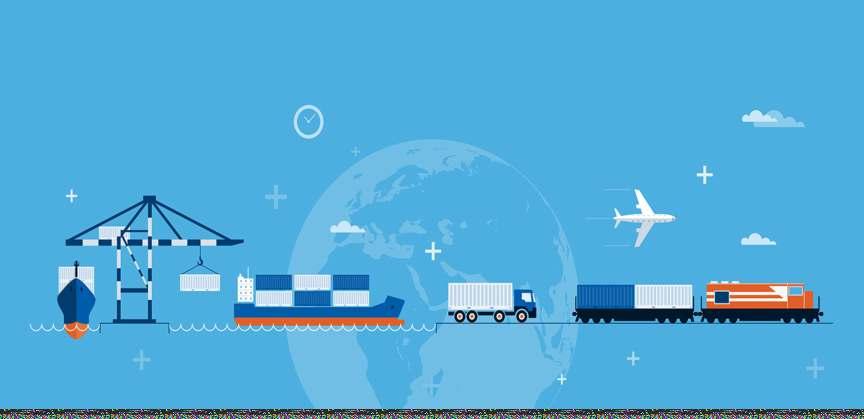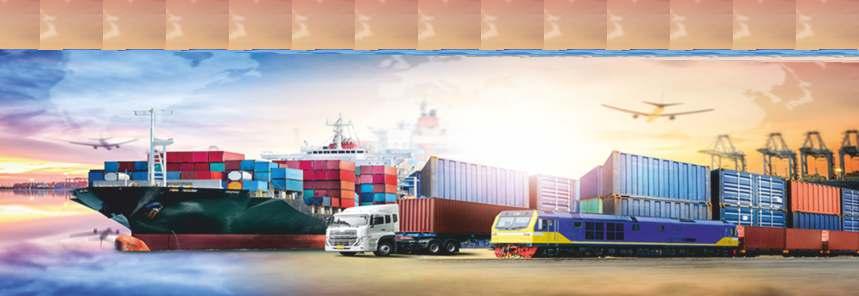
5 minute read
Cont’d
MSC becomes First Carrier to offer in-house Liquid Cargo Solutions
Cont’d. from Pg. 2
Advertisement
With unrivalled global connectivity across land and sea and an extensive port and depot network close to liquid cargo production regions, MSC’s Liquid Cargo Solutions offer flexible capacity and specifications, supporting the growth of the liquid cargo industry.
MSC experts fit carefully selected flexibags at its depots prior to cargo pick-up, which removes the requirement for haulage to third-party fitting locations, reducing road miles, saving time and money and helping customers to meet their sustainability needs. MSC Liquid Cargo Solutions are already available at depot facilities in Europe, Asia, the Middle East and the Americas.
Your Experts in Flexibag Supply and Fit
MSC works with dedicated suppliers of high-quality flexibags, and with its customers, to ensure each flexibag is tailored, selecting the right size and specifications according to the cargo’s needs.
Flexibags allow customers to fill dry containers with up to 24,000 litres of non-hazardous liquid cargo – such as edible oils, wine, petroleum products and chemicals – offering a safe and cost-effective alternative to other liquid bulk transportation methods, with less packaging than conventional ISO tanks.
Carmelo Cassarino, Global Accounts Manager,
Logistics for MSC commented: “MSC is in continuous evolution to support its customers’ needs and our endto-end Liquid Cargo Solutions are designed to simplify and streamline the supply chain for our liquid customers. MSC's in-house fit & supply expertise, combined with our unrivalled customer care and our worldwide connections, guarantee a smooth experience from start to finish – a 360o service that our customers can depend on. This solution is currently available in 21 countries across the world, and we are already looking at the potential for expansion to MSC depots worldwide. ”
Making Transporting Liquids Flexible, Sustainable and Easy
Whilst liquid cargo is traditionally transported in ISO tanks, there are many advantages to making the switch to flexibags, including the fact that flexibags are singleuse and fully recyclable, making them the hygienic choice for shipping edible cargoes. In addition, thanks to MSC’s bulkhead recycling scheme, bulkheads used for liquid cargo transport can be reused efficiently, reducing waste and improving supply chain sustainability.
Flexibags can be installed into any 20’ container which, once the bag is removed, is ready for re-use, removing the need for repositioning and saving cost. In addition, there is no need to clean the container after use, as with ISO tanks.
MSC agencies currently offering Liquid Cargo Solutions include: Argentina, Australia, Belgium, Finland, France, Germany, Italy, Malaysia, Netherlands, Poland, Portugal, Qatar, Singapore, South Korea, Spain, Turkey, UK and Uruguay with more to follow in 2022.
FIATA: What the Future International Trade Alliance means for Freight Forwarders
A M S T E R D A M : T h e F u t u r e International Trade (FIT) Alliance was formed recently by DCSA, FIATA, BIMCO, t h e I C C a n d S W I F T, w i t h t h e s e organisations signing a memorandum of u n d e r s t a n d i n g t o s t a n d a r d i s e t h e digitalisation of international trade.
Representatives of the FIT Alliance spoke to these Global Associations to discover what its aims mean to them and their members. Thomas Bagge, DCSA CEO, recently shared his thoughts on The Future International Trade Alliance, as did Grant Hunter, Director for Standards, Innovation and Research at BIMCO. Here, we discover the view from freight forwarders with Stéphane Graber, Director General of FIATA. We began by asking Stéphane:
Why did FIATA join the FIT Alliance?
Stéphane Graber (SG): At FIATA, we are fully convinced of the importance and benefits of digitalisation and what this can mean for freight forwarders, which is optimised processes and more reliable services for them and their customers.
Clearly, collaboration is key, what does that mean to freight forwarders and FIATA?
SG: It is important to us that freight forwarders play a driving role in how their activities are digitalised and, to this end, we developed the FIATA Bill of Lading (eFBL) data standard, aligned with the UN/CEFACT reference data model, to facilitate systems interoperability for all parties. This was a first step towards a fully digital bill of lading (B/L), but exchanges between different platforms require a collective resolution, partly because of the legal framework.
Through the FIT Alliance we aim to work together, as key organisations within the supply chain, to overcome the technical electronic bill of lading (eBL) interoperability challenges. Together, the organisations aim to promote and support common legislative conditions across international jurisdictions and platforms, so that digitalisation is accelerated and paperless trade becomes the way we all do business in the future.
What top three benets do you see your members gaining from the Alliance?
SG: Firstly, interoperability of standards. Through the FIT Alliance we will ensure that FIATA’s digital standards, including those for the eFBL, are interoperable with standards developed by other organisations so that we can all exchange information fluently. FIATA sees great importance in leading the discussion on data ownership and interoperability.
Secondly, technical interoperability to enable the transfer of eBLs from one platform to another.
Finally, the legal acceptance of digital documents. This is probably one of the biggest challenges ahead of us. Through the work of the Alliance, we should encourage countries around the world to adopt harmonised legislation that will enable the legal recognition of electronic transferable records in more regions. We can bring about all kinds of technical solutions but without that, it will not happen.
What does the Alliance mean more widely, for international shipping and trade?
SG: Quite simply, it’s the dream! And all logistics industry players share the same dream – the seamless transfer of eBLs between all those involved in shipments – shippers, buyers, carriers, freight forwarders, banks, authorities, warehouses, insurers – we are all looking for that because it will help save time and money for everyone.
The FIT Alliance shows a joint commitment to facilitating this through a collaborative approach. We need to work together to realise the dream, respecting, considering and protecting the different stakeholders with their specific needs and requirements, because we all play different roles in the supply chain.





